Second World War veteran takes to the skies in light aircraft for first time 70 years
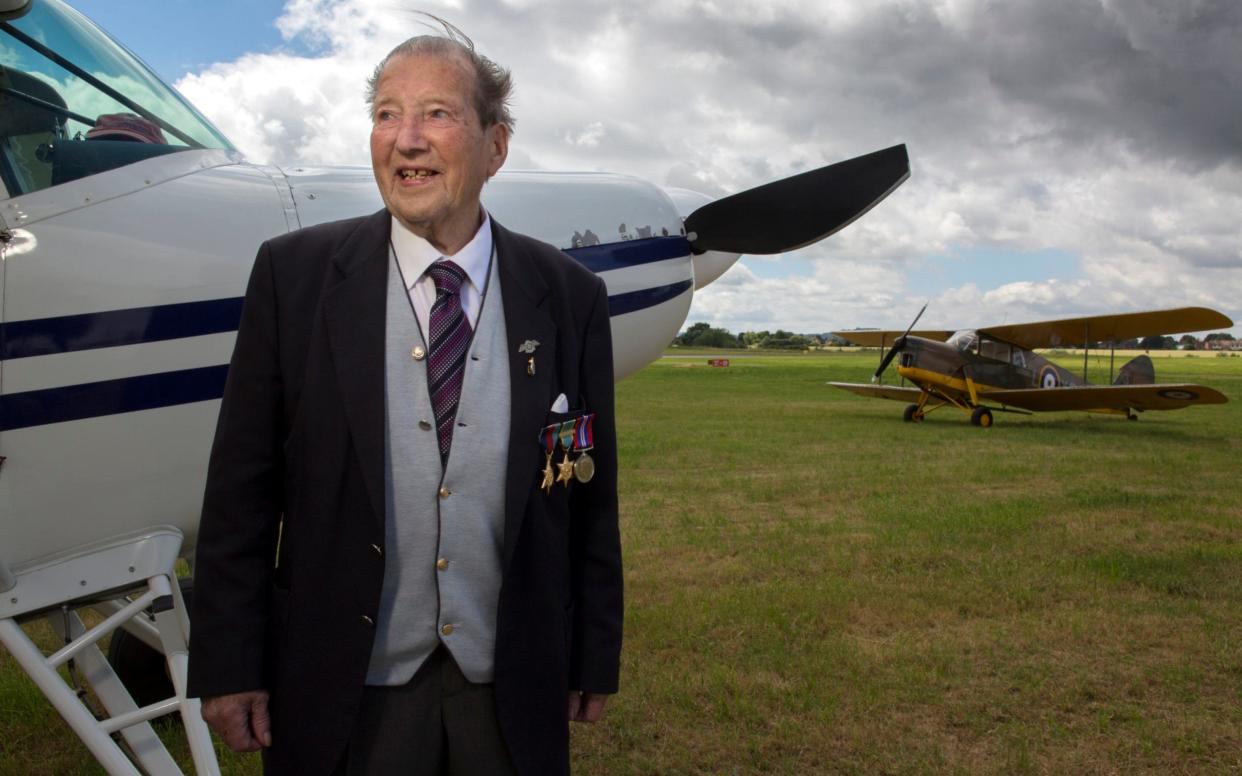
Flying in a small aeroplane for the first time since the end of the Second World War, Flight Sergeant John Galloway yesterday made the 680 mile round trip from Prestwick in Scotland to Gloucestershire for a reunion with 150 other aircrew veterans.
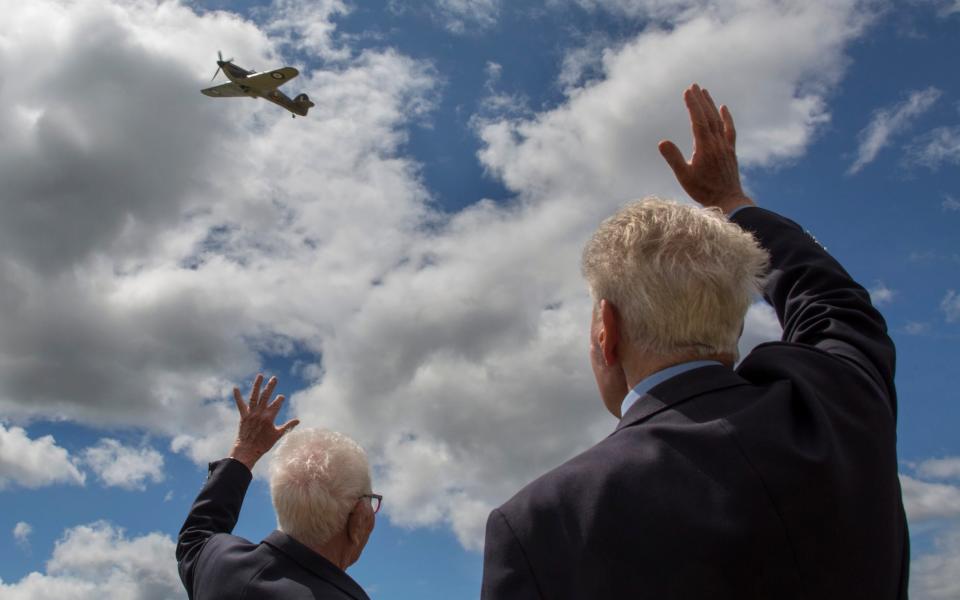
Around ninety private planes brought them together from all over the country for the annual 'Project Propeller' meet-up. The flights are gifts from current pilots as a mark of gratitude and respect.
Flt Sgt Galloway, who was a Lancaster gunner in the war, described his trip, his first time taking part in Project Propeller, as "peaceful, but a bit cramped" and said he had "no nerves" about getting back up in the skies in a light aircraft.
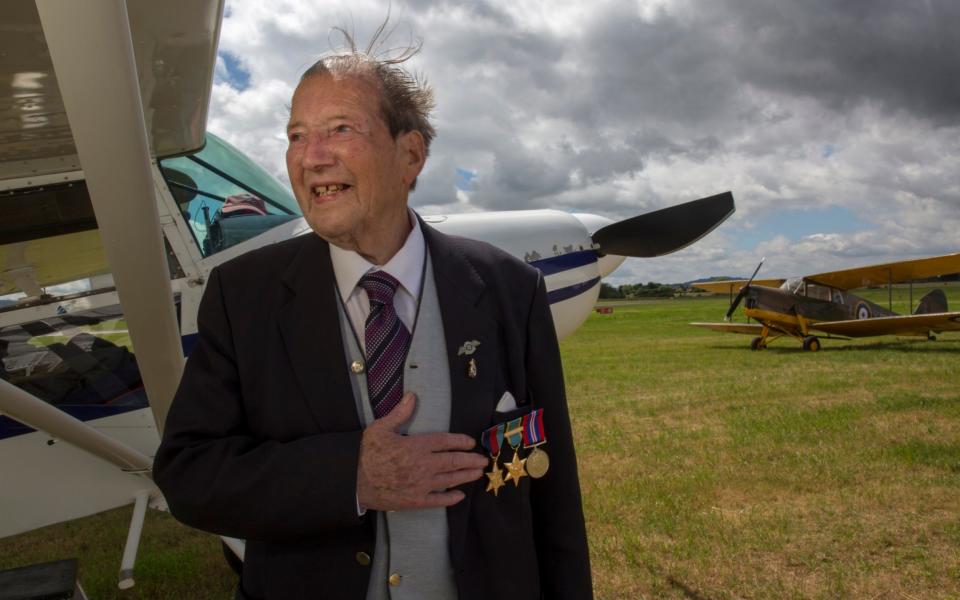
His real highlight of the day was receiving a replica set of his medals from Air Chief Marshal Sir John Cheshire - the originals were lost in a house fire in 1954.
One of the pilots flying the veterans was Peter Holmes, who flew in from Surrey with Flt Sgt Arthur Parker and Flt Lieutenant Eric Smith. “It is good to see smiles on their faces, nice to give something back to the old boys”, he said.
For the veterans gathered yesterday, all in their nineties or over a hundred, the experience of being in a light aircraft – in quiet skies without the fear of being shot at – is as close as they will come to recalling their time in the air in the 1940s.
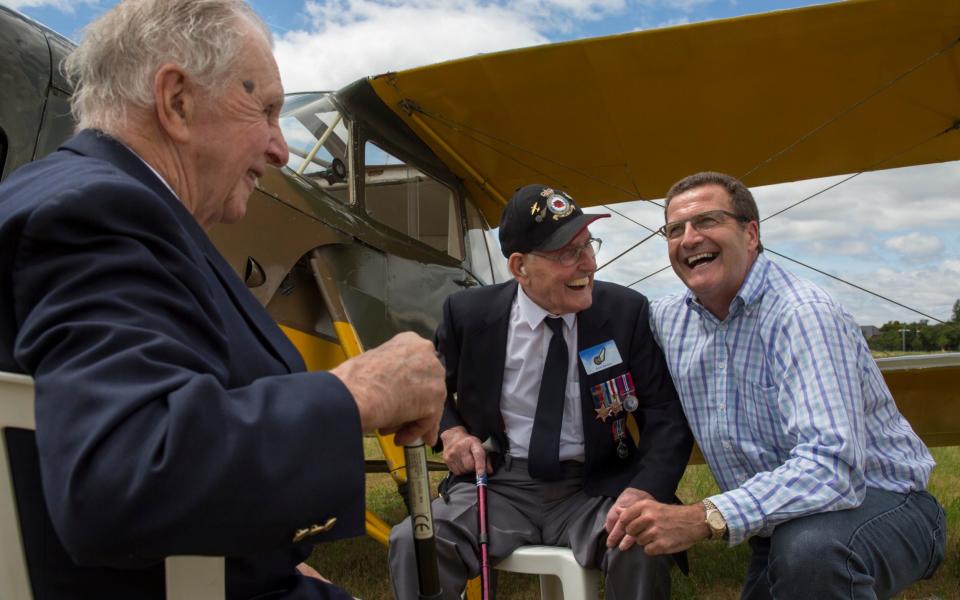
Many of the veterans are reluctant to talk about their wartime experience, however they do draw comfort from being together and they do look back. “It was a terrible war” said Warrant Officer Harry Irons, a rear gunner mostly on the large four-engined Halifaxes who received the Distinguished Flying Cross. He has attended the Project Propeller reunion many times. “It is an incredible afternoon, I look forward to it year after year,” he said. “We chat about all sort of things, always thinking of those who aren’t here.”
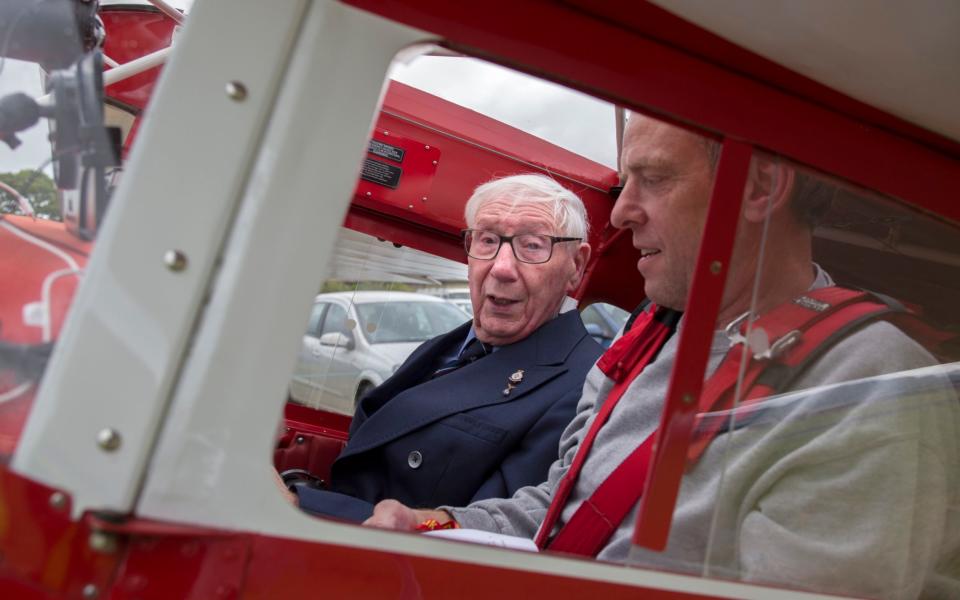
Flt Engineer Dick Raymond and Navigator John Ottewell were both members of Lancaster squadrons; they met for the first time yesterday and swapped stories about Operation Exodus – which brought hundreds of exhausted prisoners of war back to England after weeks of walking westwards following their release by the Germans from their camps. FE Raymond survived the ‘Long March’, but “many didn’t”, he said. “You were simply shot by a Russian if you fell back. And many did fall, not everyone survived raw sugar beet which was about all we had to eat,” he added. Exodus took place from Brussels – Mr Ottewell was a navigator on one of the Lancasters deployed to bring the men home.
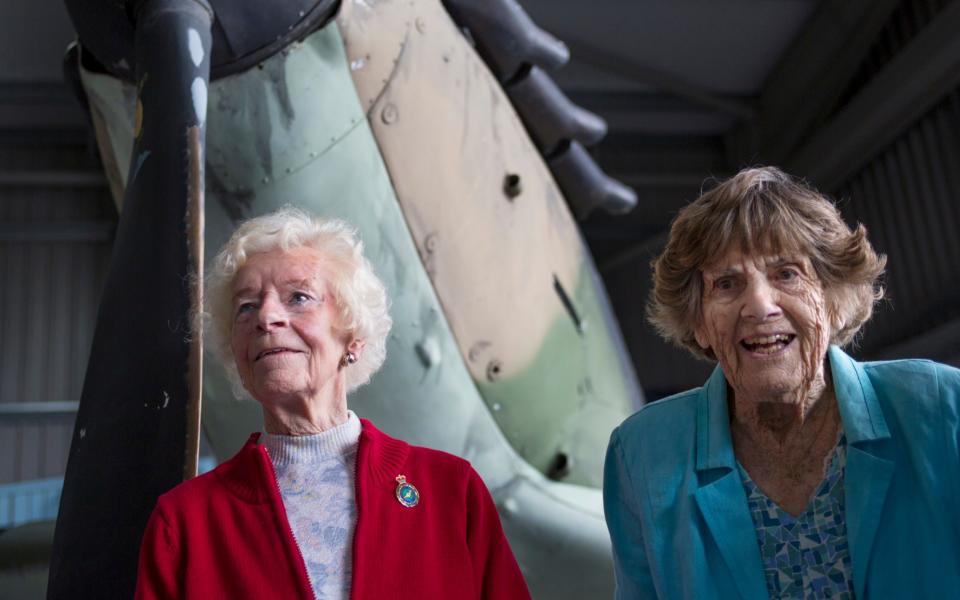
John Nichol is a war veteran too, but far more recent; he was in the Gulf in the early 90s, during which time he was captured, taken prisoner and tortured. Attending Project Propeller yesterday, he said “Events like this are really important because we need to say thank you to these men. They are the generation who gave everything, the men who were willing to give their lives to save our country.”
“Most of all” said WO Irons “Project Propeller shows we are, and what we did, is being remembered.”

 Yahoo News
Yahoo News 
